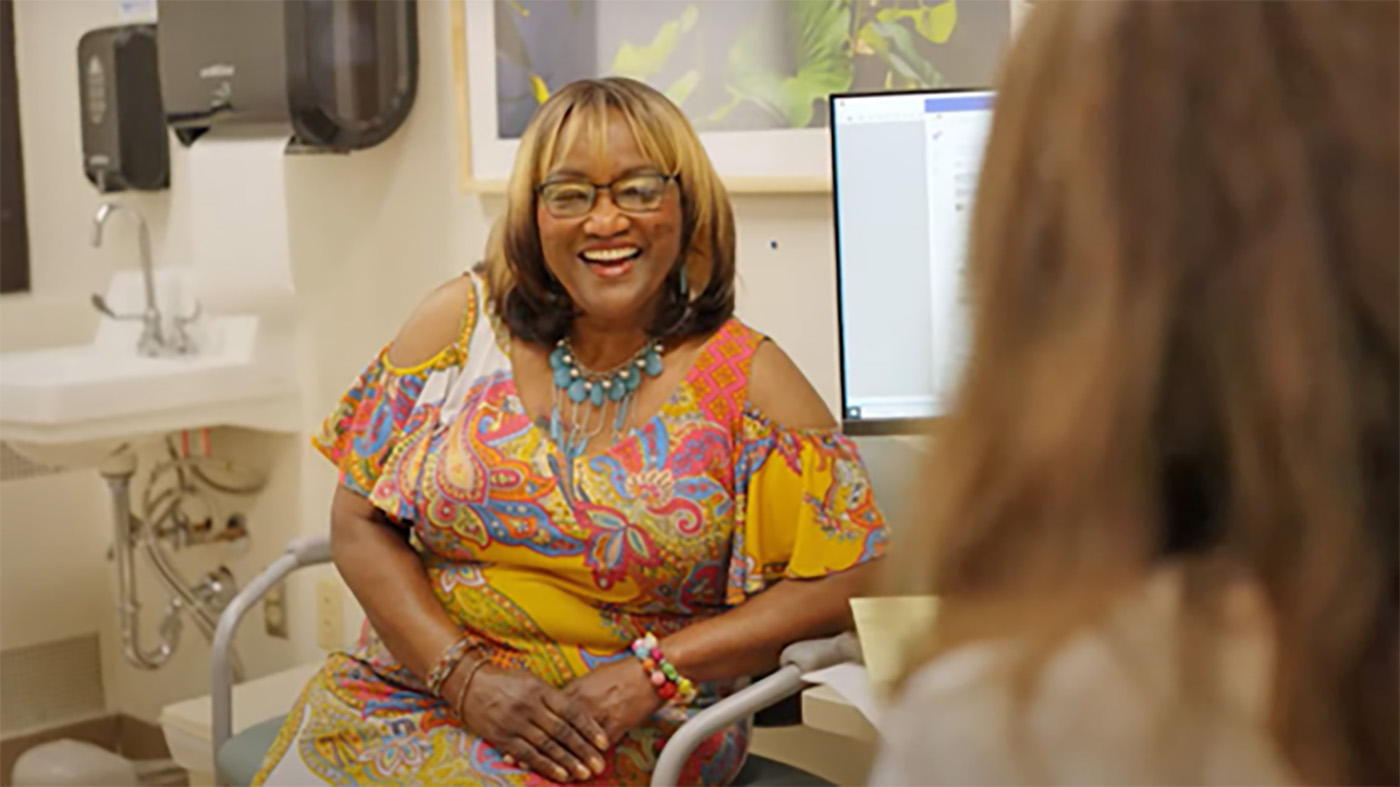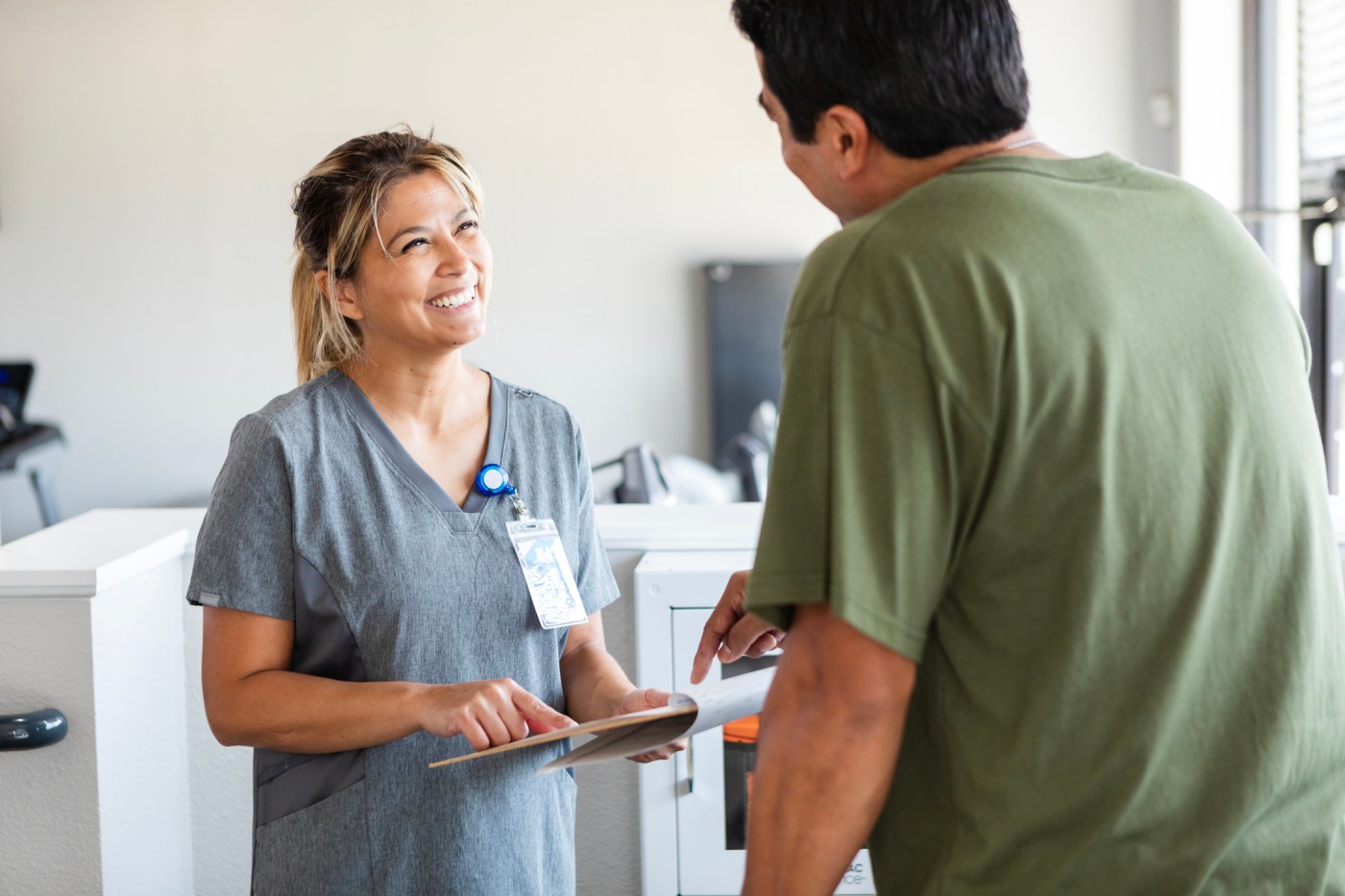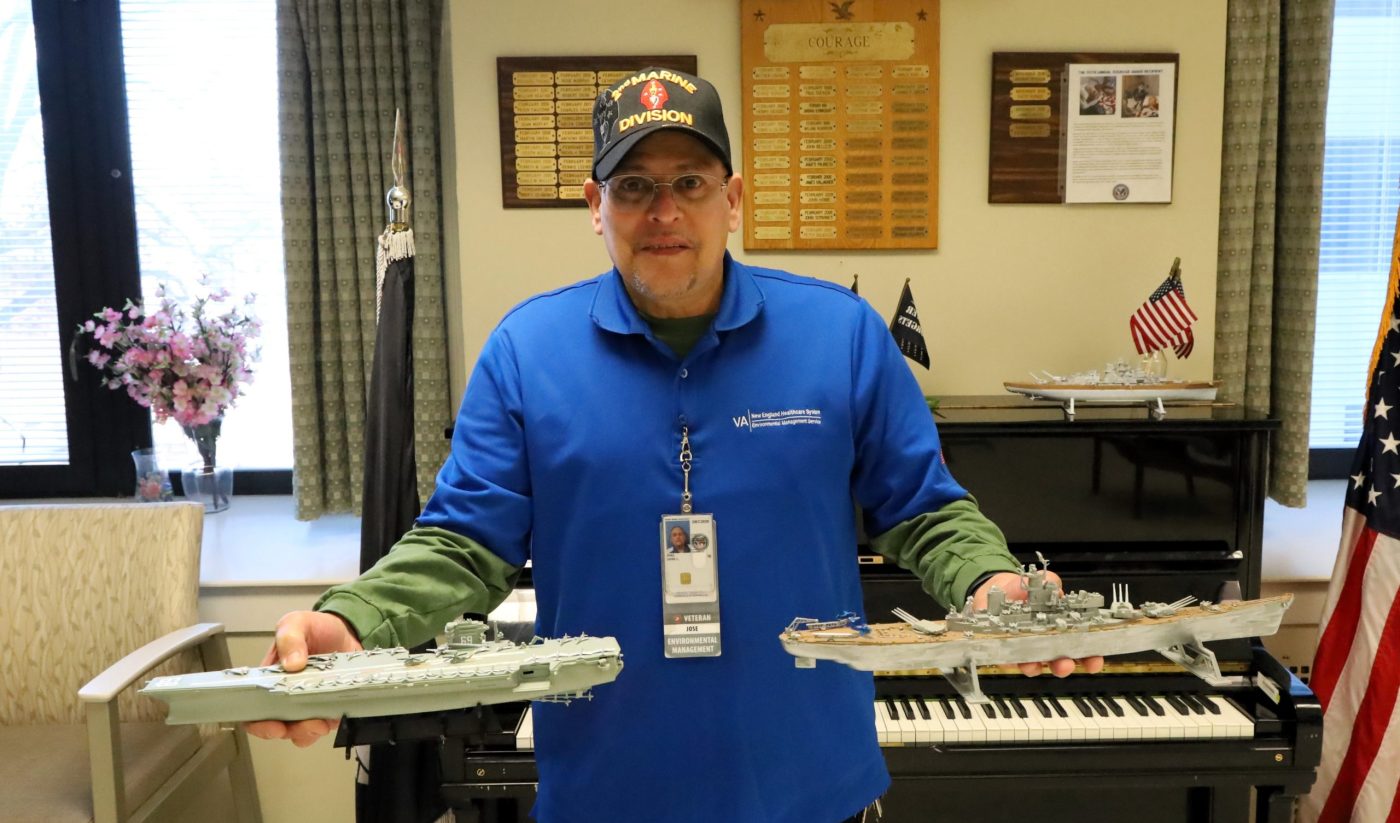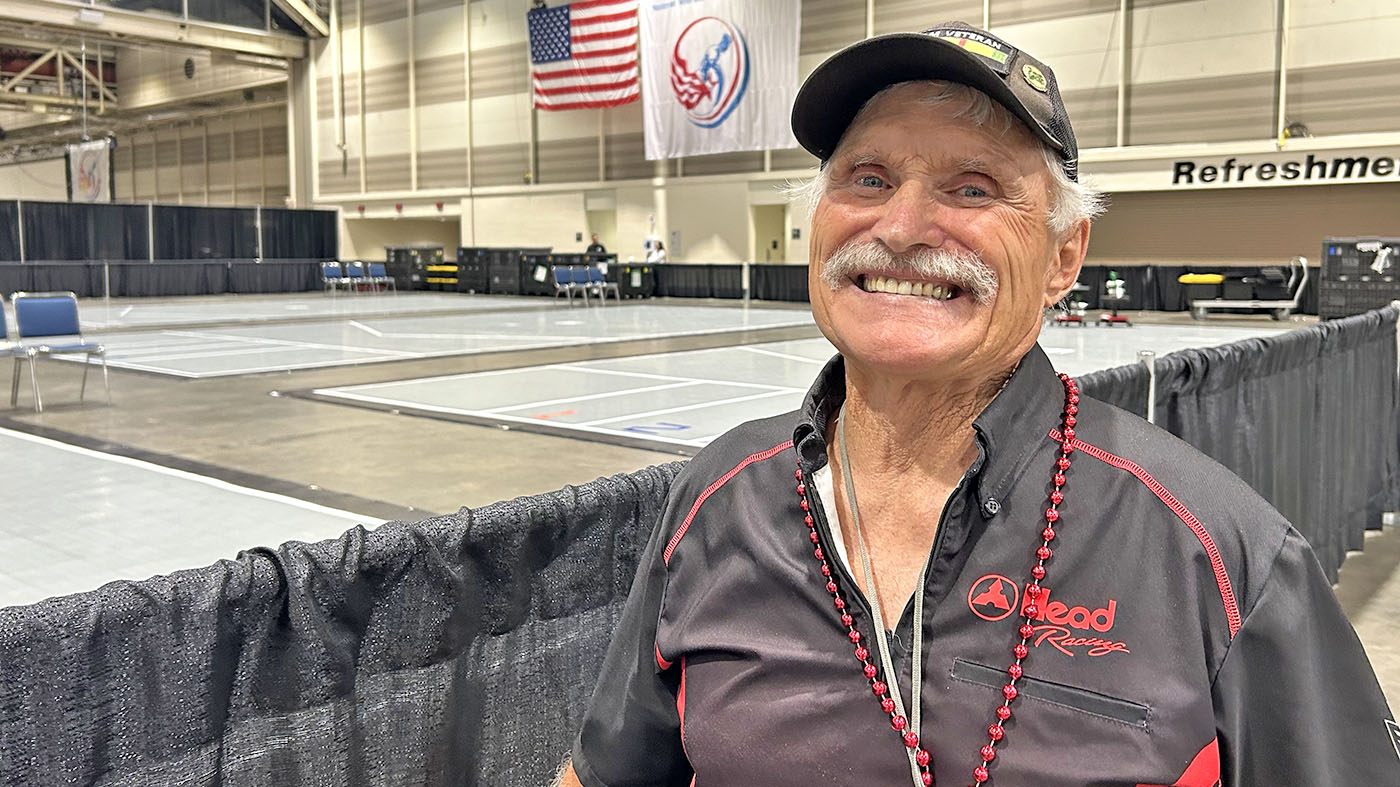In pursuit of VA’s commitment to being a high-reliability organization and provide high-quality and holistic care, VA’s National Oncology Program recognizes the significance of healthy living in cancer care. Faced with the challenges of cancer, maintaining well-being is of utmost importance. VA has transformative resources, guidance and real-world perspectives that empower Veterans, enhance well-being and foster resilience.
Prevention and screening: Unlocking wellness potential
“Getting regular physical activity, striving for a healthy weight, being tobacco free and limiting alcohol are all powerful tools for reducing cancer risk,” said Dr. Jane Kim, executive director for Preventive Medicine at VA’s National Center for Health Promotion and Disease Prevention. “Not only for cancer, these healthy lifestyle behaviors are the foundation for preventing and reducing other diseases as well.”
Staying up to the date on your cancer screenings is one of the best ways to stay proactive in safeguarding your well-being. If you are curious about whether you might be due for a cancer screening, VA has a quick-reference list of screening guidelines for the most common cancers Veterans face, including breast, cervical, colorectal and lung. It’s also important to talk to your primary care provider to determine whether you are due for any of the screenings listed and ask any questions you might have.
A holistic approach to post-cancer wellness
Wellness after cancer treatment holds immense significance as it marks a new chapter in the survivor’s journey, emphasizing the need to restore and optimize overall well-being. While treatment addresses the physical aspects of cancer, focusing on wellness goes beyond mere recovery. It encompasses various dimensions, including emotional, mental and social well-being.
According to VA’s Whole Health Library, even if the cancer is cured, patients will find themselves adjusting to a “new normal” while they become accustomed to residual side effects from treatment and learning what new symptoms may or may not be concerning for a recurrence.
That is why adopting a healthy lifestyle is vital for overall wellness after cancer treatment. This includes maintaining a balanced diet, engaging in regular exercise suitable for individual capabilities and managing stress effectively. Taking care of physical health not only promotes well-being but also reduces the risk of cancer recurrence and other chronic illnesses.
Testifying to the significance of striving for optimal health, Air Force Veteran Denise Baptist—who underwent treatment for multiple myeloma in 2017 and is now in remission—encourages her fellow Veterans to make a conscious decision to improve their lifestyle. Baptist encourages Veterans to, “Keep all their appointments and listen to their doctors.”
Nurturing wellness through connection
Peer support during cancer treatment offers invaluable companionship, understanding and guidance, providing Veterans with a supportive network of fellow warriors who share their unique experiences and can offer emotional and practical support. It also promotes mental wellness by providing a sense of belonging and alleviating feelings of isolation.
VA’s Breast and Gynecologic Cancer System of Excellence (BGSoE) is planning a new Peer Support Program, a virtual platform for Veterans undergoing treatment for breast or gynecologic cancers.
“We are thrilled to offer this new program to Veterans who can benefit from connecting with peers who may have shared experiences,” said Dr. Haley Moss, director of VA’s BGSoE and gynecologic oncologist at Durham VA. “Peer support provides a vital lifeline to Veteran cancer patients, particularly women with breast or gynecologic cancer, offering them the much-needed encouragement, recognition and solidarity that has long been overdue.”
Resources empower post-cancer wellness
In addition to her cancer surveillance program, Baptist participated in the MOVE! Weight Management Program during her post-treatment wellness journey and says her weight is now where it is supposed to be.
“There is quality care that is available to Veterans at VA. I want them to take it, live and enjoy life, and allow VA to help them have a better journey in life. The most important thing is you’ve got to have faith. You have to have an attitude of gratitude. Have a positive mind and thinking. If you think good things and you have great doctors, you can do it.”
Ultimately, prioritizing wellness after cancer treatment allows survivors to reclaim their lives, promoting resilience, self-empowerment and a sense of control over their health. It recognizes the cancer journey does not end with treatment but continues on with a focus on comprehensive well-being, encouraging and equipping survivors to lead fulfilling lives beyond treatment.
Aiming for wellness throughout your cancer journey
By considering the whole health of Veterans, our goal is to optimize your overall quality of life during the entire spectrum of your cancer journey.
A recent VA study uncovered that VA cancer patients are less likely to need to go to the hospital for avoidable complications after going through chemotherapy than Medicare patients. These findings underscore the positive effects of VA’s comprehensive cancer care and support for Veterans. It emphasizes the importance of targeted interventions that reduce hospitalizations and improve the experience of a cancer journey beyond the completion of treatment.
To all Veterans facing the challenges of cancer, we encourage you to explore the support programs and wellness guidance available. Remember, you are not alone on this journey and there is a network of fellow Veterans and caring oncology professionals ready to support you every step of the way. Use the resources available through VA, prioritize your emotional well-being and know that you deserve the best care possible.
Learn more about cancer care and VA
Veterans are strongly encouraged to talk to their VA provider about the need for different cancer screenings and what screening options are available.
To learn more about how VA works shoulder-to-shoulder with strategic partners to expand access and reduce barriers cancer care at VA, visit cancer.va.gov.
Visit My HealtheVet to learn tips and tools to help you partner with your health care team, so together, you may work to manage your health.
Topics in this story
More Stories
One strategy credited for the improvement is a focus on building trust and stronger patient-provider relationships.
Army and Marine Corps Veteran started making models after being hospitalized at Connecticut VA.
Veteran Hank Ebert is a bit of a superstar in the National Veterans Wheelchair Games. He has been attending since 1993.







The V.A. Is going to do what’s in their best interest. Especially when it comes to money, and cancer treatments are some of the most prestigious of pricey health care. Get screened properly for cancer, and don’t count on the V.A. to stay up on your health in any fashion.
I had prostate cancer many years ago. My PSA always comes out good. Should I still get screened?
Was supposed to get set up for a cancer screening in March, now October. Did the pony express horse die?
please send info=== no one knows what cancer i have at the va =====thanks
This is a lie. I went through chemo and radiation treatment for oral cancer over 30+ consecutive days, and my after care was a few jars of Vaseline to slab on my burnt up skin, a booklet, extreme weight loss, loss of taste. To this day, 30+ months after treatment, I am still under weight, discolored facial skin, extremely limited taste, swallowing trouble, and only 9 teeth left in my mouth with remnants of broken off teeth still in my jaw. Cant get VA Dental care because I’m not inpatient, nor 100% disabled, nor homeless. There wasn’t and isn’t any Cancer Aftercare for me. And all they do is want me to keep coming back getting CT scans every 6 months for 5 years and still don’t tell me whether I’m cancer free. I’ve decided to not go back for the scans until the 5 year mark or unless I feel something different in that area, or elsewhere, that’ll prompt me to get checked out- whichever comes first.
Very very angry and disappointed.
how come my va provider doesn’t know about this cancer screening, dont they get the bulletin , i went to my provider who said an x ray is how they usually do cancer screening and hasnt heard about the ct scan
I had 1/3 on my lungs removed in
2015. I received MRIs every six
Months for five years, should I get
Tested again squemus cell carcinoma.
VA providers should provided cancer screening to all Veterans when they are due for the three months Laboratory screening. These way Veteran’s have more chance’s to survive any type of cancer, if found at early staged. I have being treated by VA sense 2000 or before and now on 2023 I found out that I have bladder cancer. I believed that VA provider’s are not providing early blood test screening for cancer to Veterans, and for these reason cancer amounts Veterans are increasing-more every year. More mortalities and not to many chance’s to survivable. ( prostatic cancer, bladder cancer lungs cancer, colon cancer, Gastro cancer) and many other that cut be detected early by a simpler blood test. Thanks you for you attention…
What a great article and information. It would be nice if all female veterans qualified for this service, regardless of where they fall on the income eligibility.
My BA doctor won’t test me for any cancer until I stop smoking